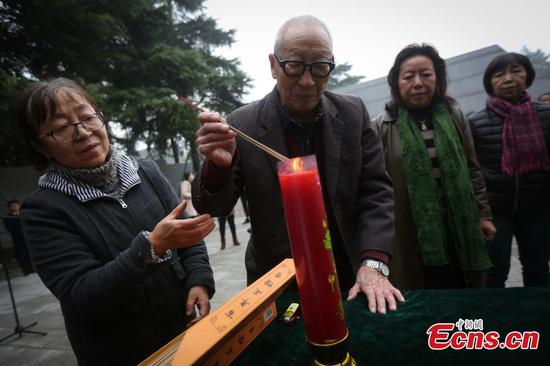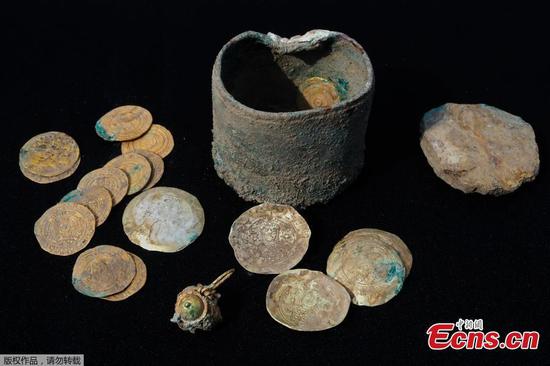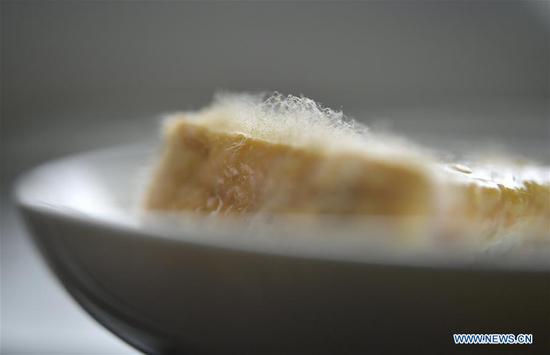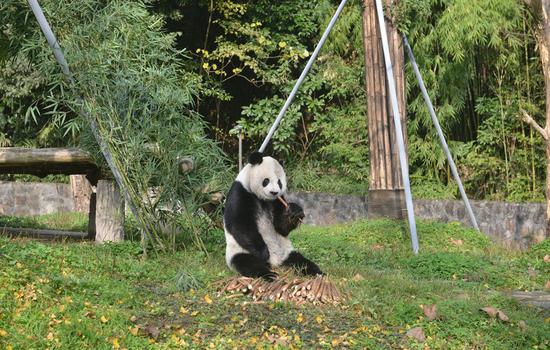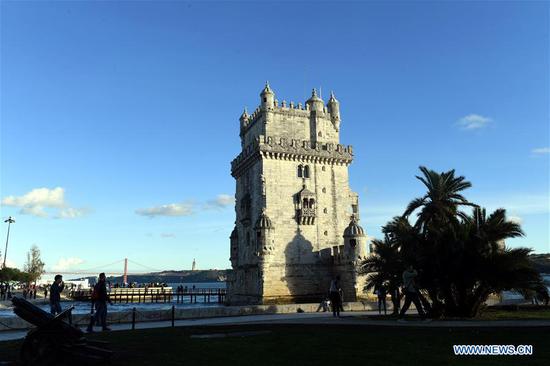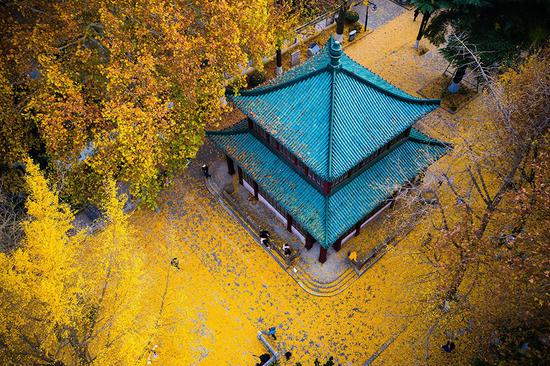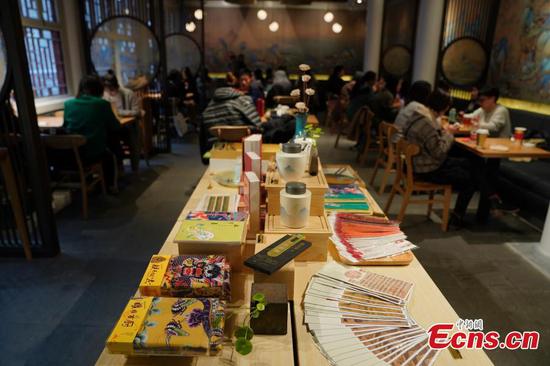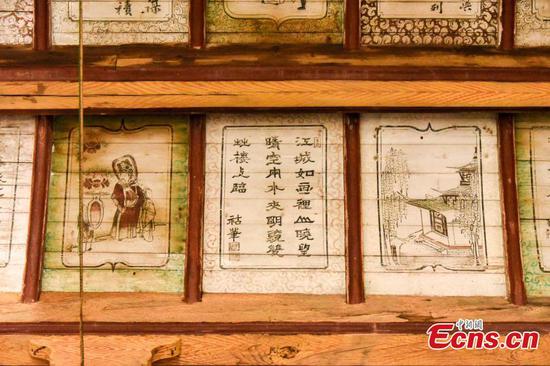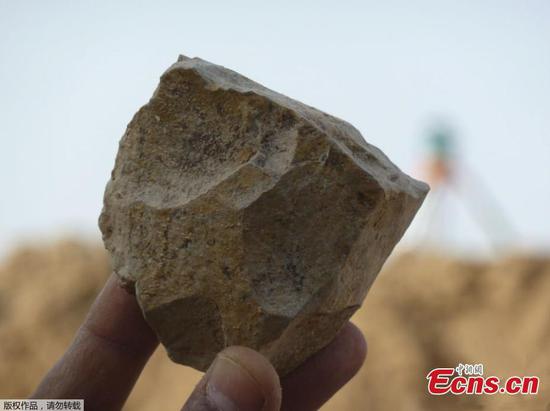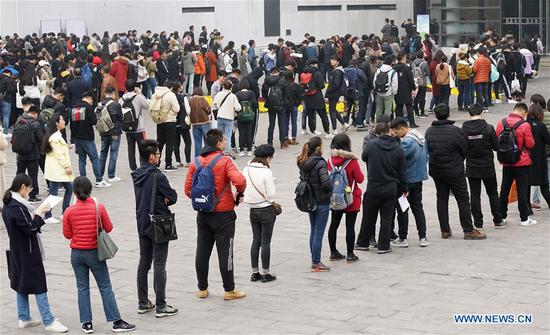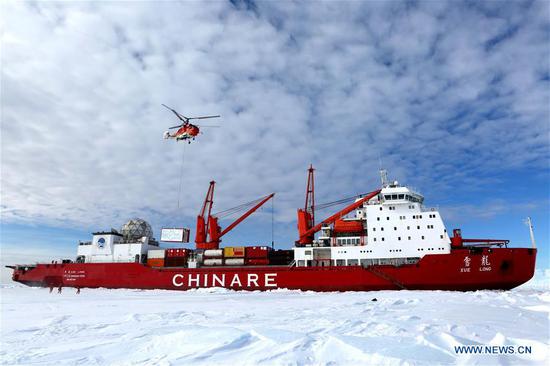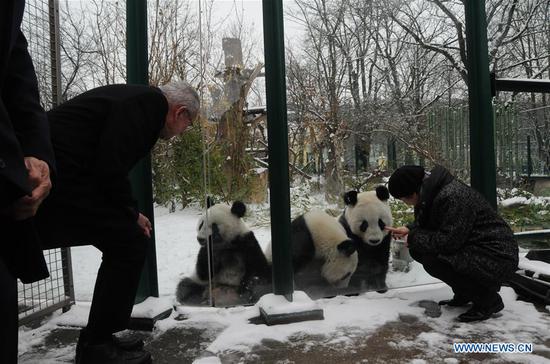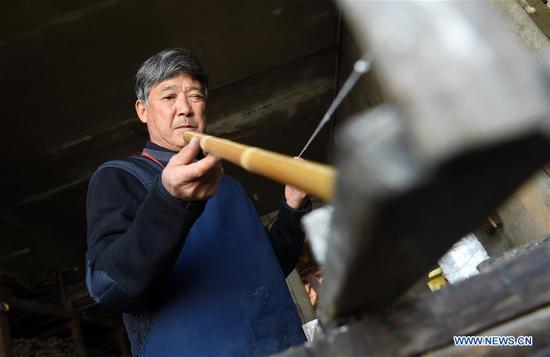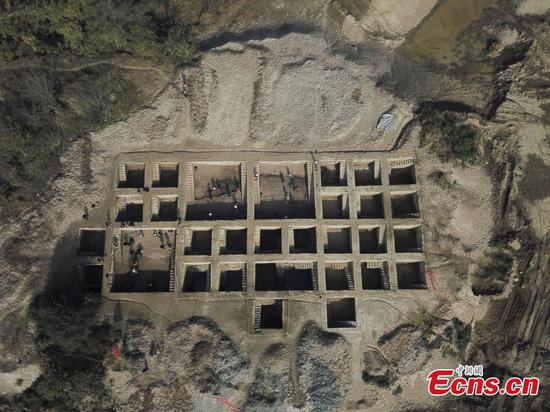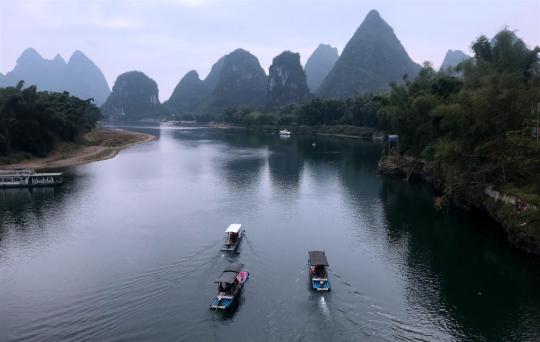
Boats carrying tourists sail on the Lijiang River in Guilin, Guangxi Zhuang autonomous region, in October. The picturesque scenery has made the city a popular tourist attraction. (ZHANG AILIN/XINHUA)
A campaign to relocate residents from river islands along the section of the Lijiang River flowing through Guilin, Guangxi Zhuang autonomous region, has helped restore the ecosystem, according to the city's Lijiang River Management Committee.
The Lijiang River, flanked by karst mountains, is a well-known tourist attraction and sightseeing cruises are popular with visitors.
However, sections flowing through urban areas of Guilin stank of the waste and sewage water emitted by households and restaurants along the river, especially people living on river islands, Shi Ming, deputy director of the committee, said.
"The communities on the islands are actually 'urban villages' that have substandard infrastructure and waste disposal, causing great damage to the river," he said.
Shi said the government launched the campaign to relocate residents on four river islands - Nanzhou, Mahuangzhou, Fulongzhou and Dazhou - in 2016.
About 1 billion yuan ($144 million) in investment has been channeled to the campaign.
So far, 26 restaurants and another 500-plus illegal buildings on the four islands have been torn down, which decreased the amount of sewage draining directly into the Lijiang River by 8 metric tons per year.
Huang Gang, a 65-year-old who used to live on Fulongzhou Island, was encouraged to move from the island in late January.
"My family got a compensation payment of 1.45 million yuan," he said. "We bought an apartment in the urban area with 900,000 yuan but we still miss the house we had on the island."
Huang said that his family had lived on Fulongzhou Island for about six generations, making a living by raising horses, growing vegetables and running restaurants.
"It's a compromise we made to improve the environment," he said. "Though I feel guilty to my ancestors and family members, it's what I can do to bring more benefits to posterity."
Yan Jianzhong, director of the Diecai subdistrict office in charge of resident relocation for Fulongzhou, said that the relocation was finished in late January and all 137 people from 23 households were encouraged to leave.
"It's a project that is both ecologically beneficial and good for the islanders," he said. "The infrastructure of Fulongzhou was quite backward, as no tap water was available to the islanders, and the only connection between the island and the outer world was a shabby bridge that was usually damaged by floods."
Free training and services to help the islanders find jobs are available to the residents to secure them a better life in urban areas, he said.
The eco-remediation project for Fulongzhou Island has attracted an investment of 91 million yuan to shape the river island into a park with a boardwalk, according to a statement by the government.
Fulongzhou Island is scheduled to open to the public before the Lunar New Year in February, Shi, from the Lijiang River Management Committee, said.
Zhao Leqin, Guilin's Party secretary, said the Lijiang River remains the priority in the city's development campaign and also serves as Guilin's strongest attraction.
"It's a challenging task but has great honor, which will bring benefits to generations to come," Zhao said.










